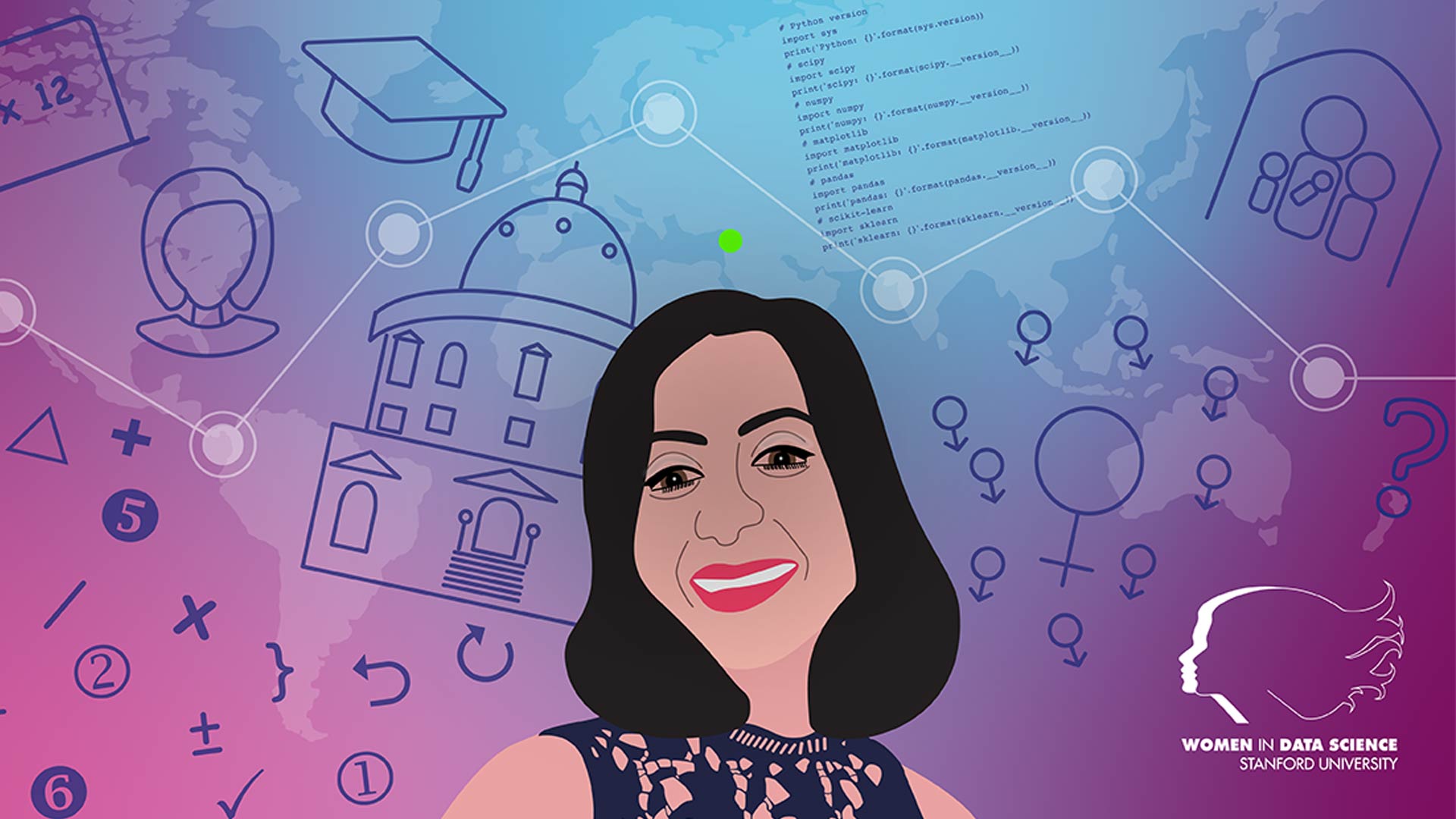Fatima Abu Salem grew up in Lebanon and has focused her data science research on addressing critical challenges in the region, including problems around the Syrian refugee crisis, the water quality in Lebanon and their irrigation requirements for farmers.
Fatima explains that her life journey is really enshrined in the conflict of the region. She was born to a Lebanese mother and a Palestinian father who had refugee status so she inherited this status. This meant there were many restrictions on what career she could pursue and her dream to become a doctor was out of reach. But she was good in math so majored in mathematics at the American University of Beirut and one of the only jobs available to her as a Palestinian was able to become a high school teacher. She taught for a few years but realized it wasn’t what she wanted to do with her life.
At the time, she was working on her master’s thesis in Algorithmic Number Theory at the American University in Beirut and decided she wanted to pursue a PhD. She emailed Oxford’s Computing Lab and a prominent professor there, Richard Brent, wrote back and invited her come study there. While at Oxford, she studied computer science, building on her knowledge of mathematics. After Oxford, she returned to AUB in Lebanon in the fall of 2004 as a faculty member. Data science was gathering momentum, so she started learning about it and was especially excited about applying data science for the public good.
Fatima is currently using data science to help out with some of the most urgent and critical questions in Lebanon and in the Middle East. She focused on what mattered to her most about the livelihood of people such as the plight of refugees, fake news, the demand on the power grid and infrastructure, food security and healthcare. She wanted to help empower the Lebanese institutions to learn how to make better predictions so they can be more prepared than when they were taken by surprise by a million and a half refugees coming to Lebanon.
She has built collaborations with experts from the medical, agriculture, and public health schools for different research projects for social impact. One is trying to predict an irrigation metric to help farmers optimize their water usage so they can increase crop yields and reduce power consumption. Another project is trying to predict dementia with a public health school and a third project trying to predict birth defects using data using air pollution data.
In Fatima’s talk at the 2021 WiDS Conference, Doing Data Science in Data Deserts, she discusses these projects and others such as quantifying anti-refugee bias across Lebanese news corporations, fake news detection, predicting primary health care demand by Syrian refugees in Lebanon, and understanding Syrian refugee mobility in Turkey.
https://www.widsconference.org/uploads/5/5/8/3/55834673/published/fatima-headshot.jpg?1631204534


